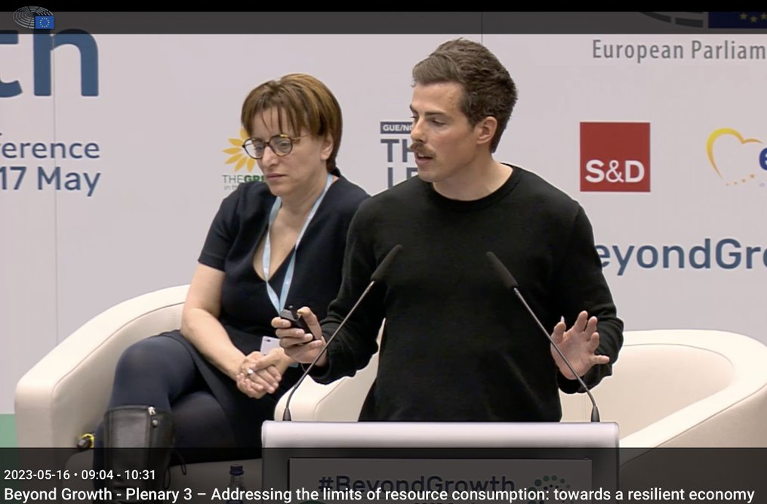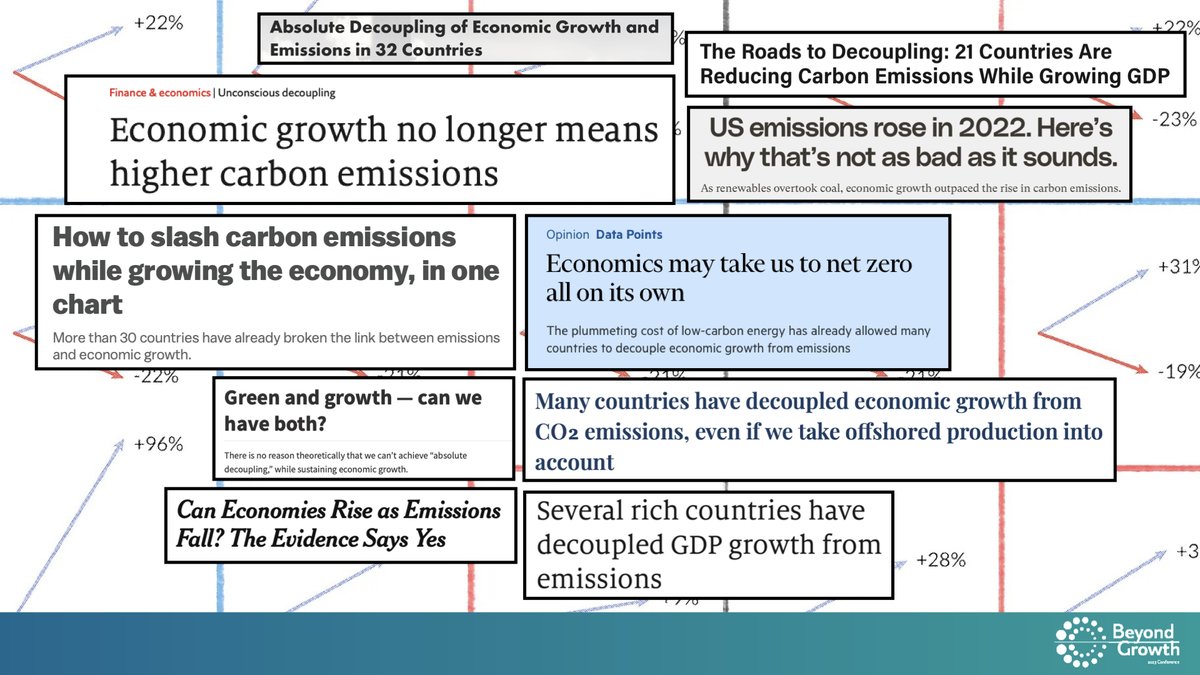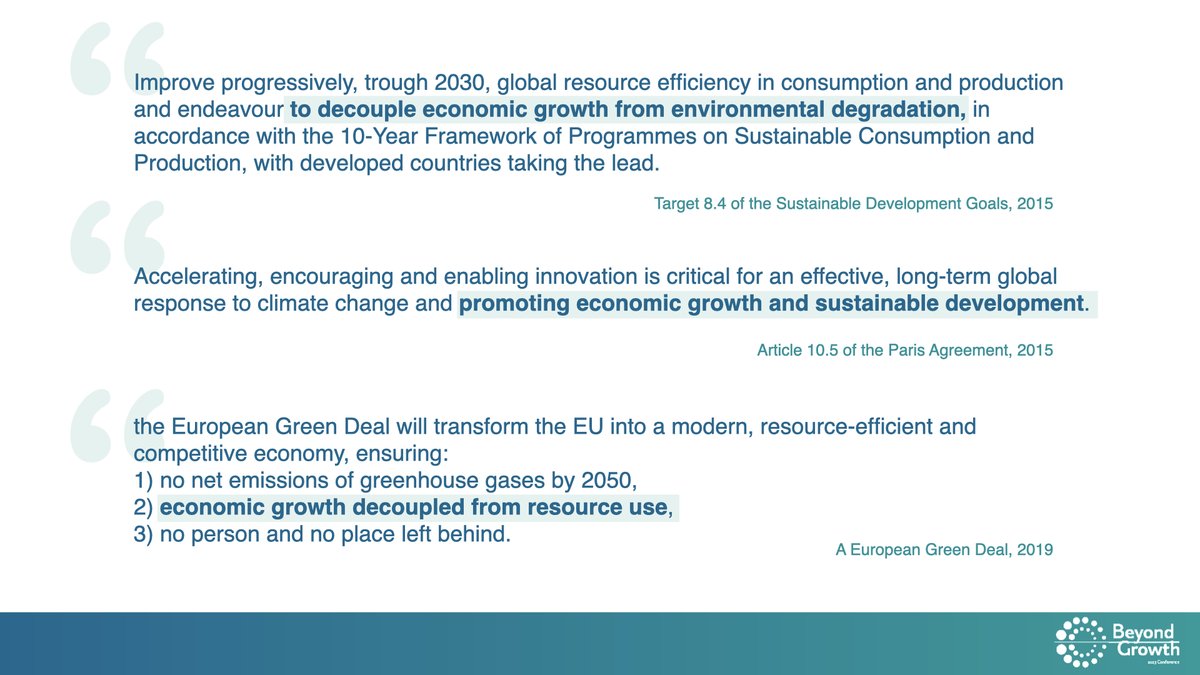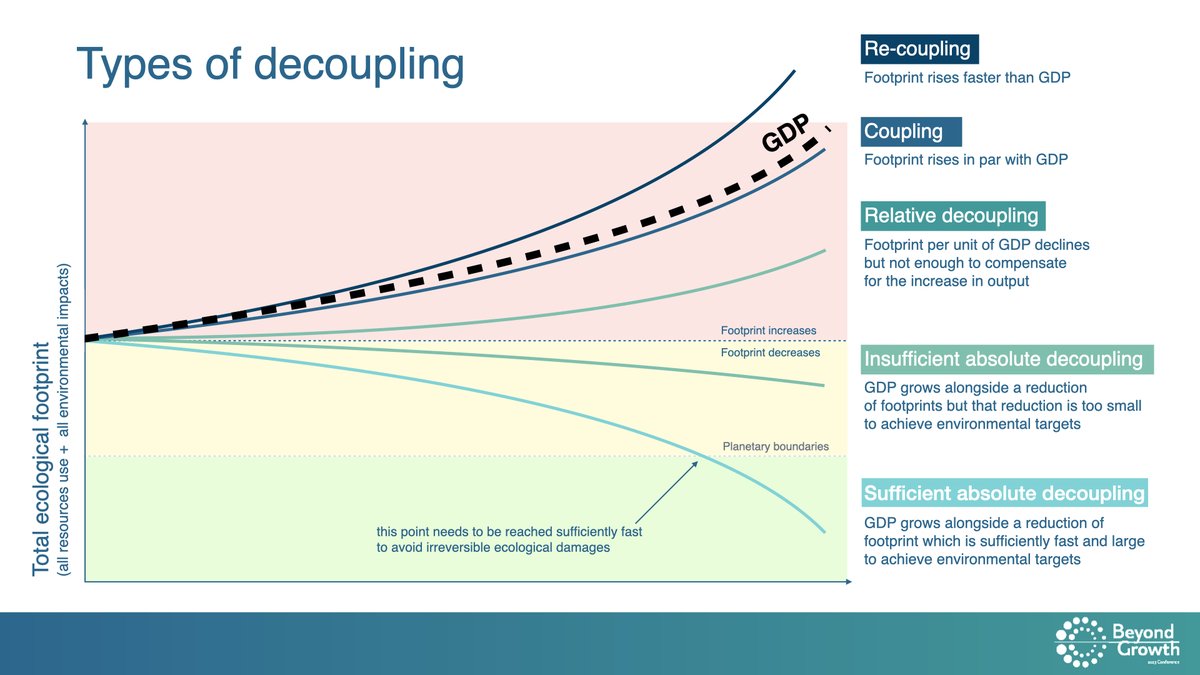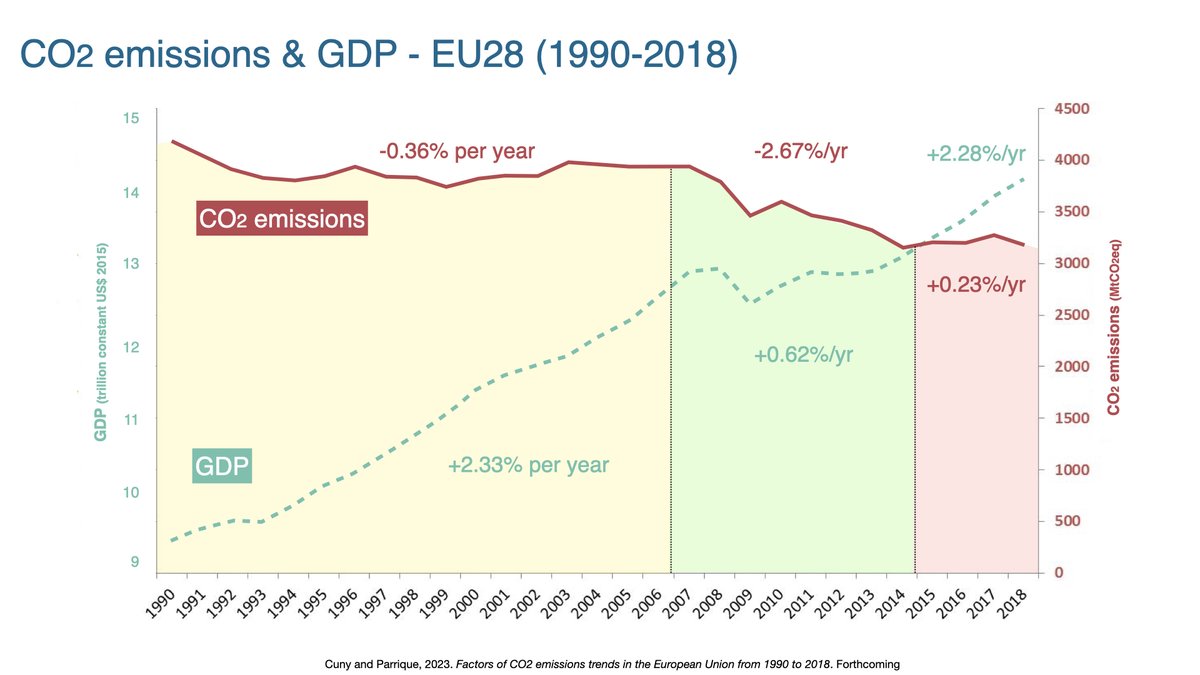There is a rumour that is picking up speed in the media, affirming that it is possible to both produce more while polluting less. Some people call it “green growth.”
This rumour is not only a rumour, it is also a belief deeply embedded within our current environmental strategies. Problem: The idea of an economic growth fully decoupled from nature is scientifically baseless and it is distracting us from more effective transition strategies.
A truly green growth needs to be (1) absolutely decoupled from (2) all environmental pressures (3) wherever these happen (4) at a pace that is sufficiently fast, and (5) that continues over time. This green growth has never been achieved.
If you believe in green growth, the burden of proof is on you and you need to bring proof that these 5 things are possible. Waiting for that, we may want to start working on a sustainability transition that is actually feasible.
The actual decoupling we witness in Europe is very very (very) tiny. Calling it “green” would be like me saying I’ve done a “diet” afer losing 200 grammes.
It’s tiny and it’s concentrated during a few years, especially years marked by a significant slow down of economic growth. the best way to green growth is to take growth away.
Looking at the current rates of coupling between GDP and carbon, the only way of reaching that objective would be to degrow GDP by between -1 and -2% per year.
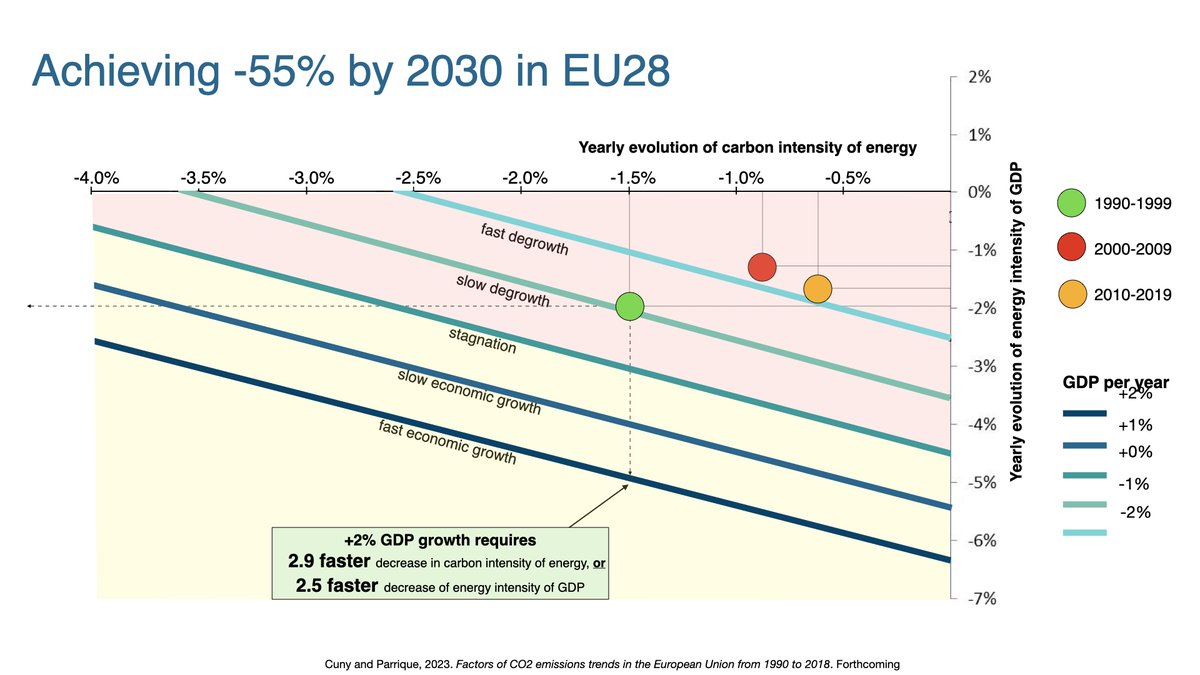 The numbers can be discussed but the logic is clear: producing and consuming more makes it more difficult to reduce ecological footprints. This is true for emissions and it’s even truer for other environmental pressures who are still intensely coupled with GDP.
The numbers can be discussed but the logic is clear: producing and consuming more makes it more difficult to reduce ecological footprints. This is true for emissions and it’s even truer for other environmental pressures who are still intensely coupled with GDP.
If technological progress speeds up, great, it means we’ll reduce emissions even faster, but it feels irresponsibly foolish to bet the survival of humanity on a highly improbable miracle predicted by the obscure models of a handful of economists.
Economic growth has brought us in a state of ecological overshoot. Considering current and expected rates of coupling, there is no way we can get back into safe planetary boundaries without downscaling production and consumption.
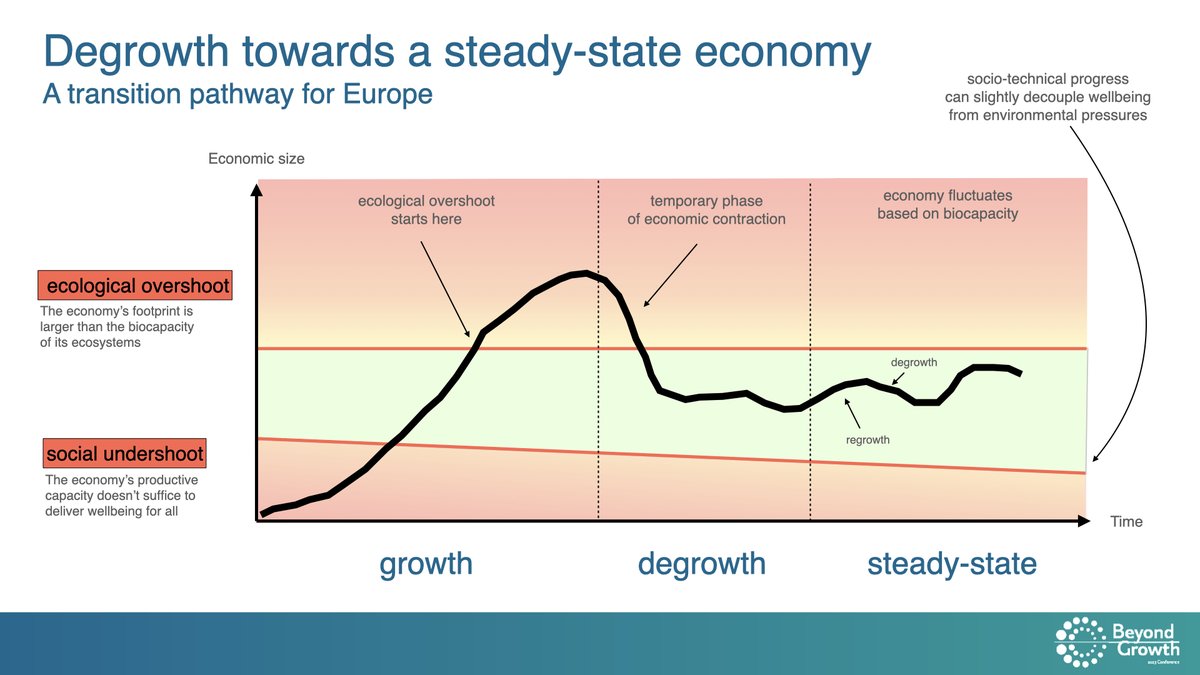 Once this is done, the size of the economy can then fluctuate around a steady-state: sometimes up, sometimes down. The important thing is that it should never overshoot biocapacity nor undershoot decent living standards.
Once this is done, the size of the economy can then fluctuate around a steady-state: sometimes up, sometimes down. The important thing is that it should never overshoot biocapacity nor undershoot decent living standards.
But we’re not all starting from the same place. Temporary degrowth in the global North; temporary growth in the global South, then both meeting at a sustainable steady-state securing wellbeing for all within planetary boundaries.
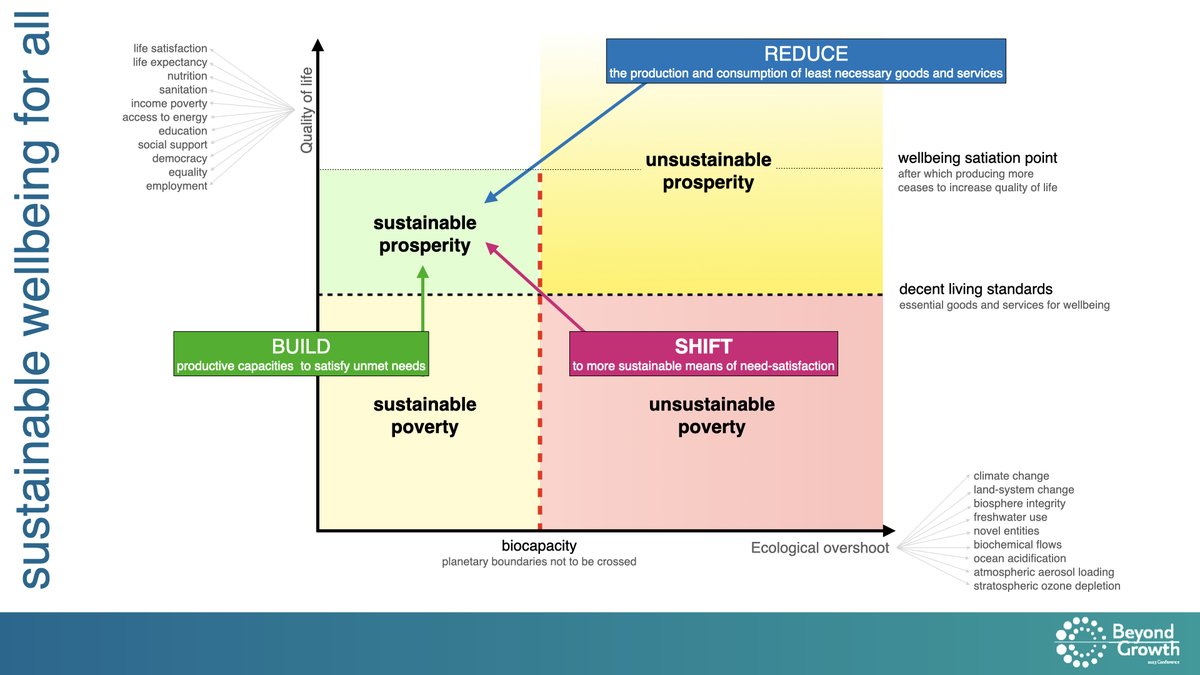 The story of decoupling is reassuring; it’s a don’t worry, everything is fine, everything is going to be okay kind of thing to say. And this is precisely why that story is dangerous. The fable of green growth is acting as a kind of macroeconomic greenwashing.
The story of decoupling is reassuring; it’s a don’t worry, everything is fine, everything is going to be okay kind of thing to say. And this is precisely why that story is dangerous. The fable of green growth is acting as a kind of macroeconomic greenwashing.
My worry is that we’re losing precious time arguing that maybe, one day, perhaps, if-this-if-that, decoupling could happen. In the meantime, we are merely tinkering with a system that should be radically transformed.
Fact is, rich countries today still look like see-saws: when GDP goes up, nature goes down. The real question is: Which one do we really want to save?
Replay available here:

Lecture: Plenary 3 – Addressing the limits of resource consumption: towards a resilient economy – Beyond Growth 2023 Conferencehttps://www.beyond-growth-2023.eu/lecture/plenary-3-addressing-the-limits-of-resource-consumption/
• • •


